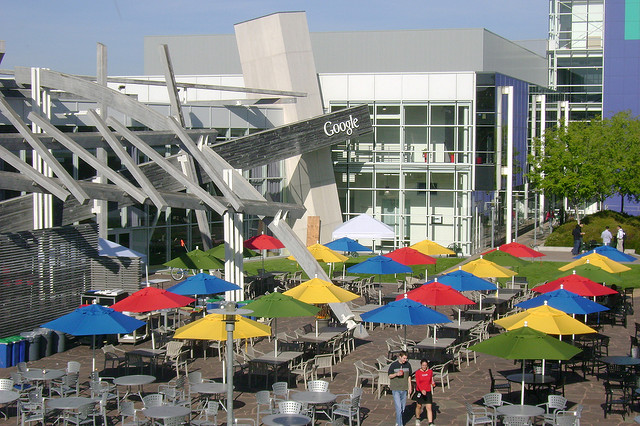GOOGLE IS LEGAL
Balloons and ribbons all around the Googleplex today as the California-based über-company celebrates its 18th birthday. “My oh my, you’ve grown!,” one might say, and one would be quite correct. Starting out as a search engine by two college students, Larry Page and Sergey Brin, Google has become THE search engine, the archetype of which all other search functions are compared to. Along the way, it’s grown, mutated, been renamed (Alphabet), and absorbed everything in sight like a crazed tech amoeba (the most ridiculous statistic is that Alphabet has acquired, on average, more than one new company per week since 2010). In addition to being the top search engine, Google owns and operates the largest email provider (Gmail), web browser (Chrome), and map service while quietly collecting data from its 24 petabytes (24 million GB) of daily user-generated requests. While most 18-year-olds are up to no good, Google stands by its “Don’t be evil” motto and promises to only use the data to help its applications to understand their users.
Of course, Google’s ambitious policy tends to skew along the lines of determining the stickiness of a nearby wall, and after several attempts they now exist in both worlds: the virtual and the physical. Its cellphone line Nexus has been growing in popularity, along with Nest home devices. Some of their experiments seemed to be little more than publicity stunts (we might just be jealous that we weren’t picked for the Google Glass beta) but some show promise. Google Fiber has been providing affordable high-speed internet to cities and metros across the US, while Translate can now utilize your phone’s camera to translate text in real time. They’re also on the frontlines of developing driverless car technology, with plans to have a finished product on the road by 2020.
There’s been concerns, of course, and recently it seems Google’s troubled teenage years have reared their ugly head. Its constant collection of data has been a sensitive subject in an age where internet privacy is constantly being threatened, but like most teens when caught doing something shady, Google explains that its intentions are pure. It wants to personalize the experience for each user without the user’s effort, and when it works, it’s wonderfully seamless. Who hasn’t been amazed when Google Maps remembers where their car is parked? And if you’re going to have to look at advertisements, why not look at ads for products that are relevant to you? But if you’re not into the idea of letting Google read your mind and run your life, it will even let you Google (it’s a verb!) methods for avoiding its ever-present gaze. And that search will be pleasant, fast, and relevant. It still does best what it was originally intended to do: gently take your hand and guide you through the vast internet frontier.
Today, the cell phone war is still raging on. But regardless of what we own, let’s look at how this ubiquitous company has changed the world for all sides, iPhone and Android user alike. Anytime today, if someone sends you a YouTube link to watch, or you use Waze to find the best route through traffic on your Nexus, or use Google Translate to understand a foreign penpal, think of the multicolored company in Mountain View, California, and wish them a happy birthday.
For some quick fun, check out their archive of Google Doodles: that’s the name of the animated, often-interactive banners they use during holidays, both popular and obscure. https://www.google.com/doodles/

